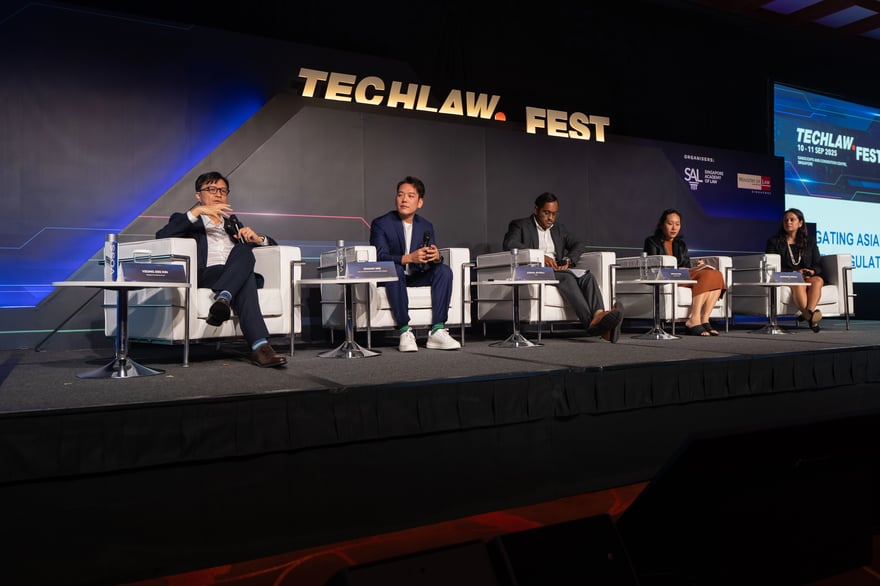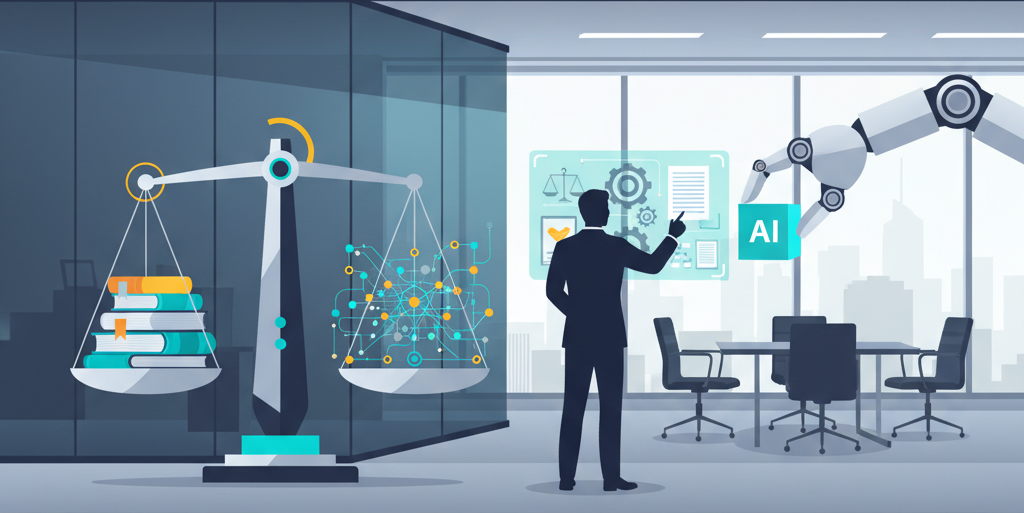
Recently in Singapore, more than 6,000 legal and technology professionals gathered for TechLaw.Fest 2025, one of Asia’s premier conferences on the future of law. The energy was palpable: from packed keynote halls to buzzing exhibit booths, the event underscored just how quickly the legal sector in Asia — and across the globe — is embracing innovation.
One theme cut through every session: legal technology is no longer a nice-to-have. It has become essential infrastructure for modern practice, whether in law firms, in-house legal departments, or courts.
The keynote by Chief Justice Sundaresh Menon from the Supreme Court of Singapore set the tone. He emphasized that as artificial intelligence reshapes the practice of law, technology must serve justice, accessibility, and trust. Efficiency gains alone aren’t enough; legal tech must reinforce the rule of law and adapt thoughtfully to local contexts. Other speakers built on that vision, discussing how AI, workflow automation, and knowledge-sharing tools are being deployed not just to speed up legal work, but to make it more equitable, reliable, and client-focused.
For attendees, the message was clear: the APAC region is at the forefront of a legal tech transformation, blending global advances with local priorities.
Event Highlights
TechLaw.Fest 2025 wasn’t just about tools and demos; it was also about ideas shaping the future of law. The keynotes and panel discussions set the tone for how the profession will navigate a fast-changing digital landscape.
Chief Justice Sundaresh Menon: Reimagining Law and Technology
In his opening address, Chief Justice Menon challenged the legal community to think beyond incremental adoption of tools. He framed technology as a catalyst for reimagining three domains at once: the justice system itself, the delivery of legal services, and even the substance of the law as it adapts to new technologies such as AI. His message was clear: technology isn’t optional; it’s foundational to building fairer, more responsive legal systems.
John Edwards, UK Information Commissioner: Trust as Infrastructure
Edwards argued that trust is not just a “nice to have,” but a critical infrastructure for the digital economy. He pointed to data protection, privacy, and cybersecurity as the bedrock of responsible innovation, urging regulators and technologists alike to embed trust directly into how new systems are designed and deployed.
Panels and Program Themes
The conference theme — “Redefining Legal in the Digital Age” — came through across a diverse range of sessions. Panels tackled issues ranging from online safety and quantum computing to the future of the billable hour and the rise of new, hybrid roles such as legal engineers and data scientists. Singapore’s launch of a new e-Apostille framework, using W3C Verifiable Credentials to streamline cross-border document legalization, was another standout, highlighting how digital infrastructure can make international transactions faster and more secure.
Together, these sessions reinforced a common theme: legal innovation isn’t just about efficiency; it’s about reshaping how trust, justice, and business can operate in a digital world.
BoostDraft at TechLaw.Fest: Localization, Efficiency, and Real-World Impact
For BoostDraft, TechLaw.Fest was an opportunity to do more than just show off features — it was a chance to listen. Across conversations at our booth and during our presentation on the Tech Talk Stage, one theme came up again and again: lawyers want to spend less time wrestling with documents and more time on meaningful analysis.
We demonstrated how BoostDraft eliminates formatting headaches, flags drafting errors before they become problems, and makes redlining faster and more accurate. The response was immediate: attorneys we spoke with immediately recognized their daily frustrations reflected back at them in the pain points we solve. Many told us that they’re actively looking for solutions that speak directly to a lawyer’s lived experience.
Another point that resonated strongly was localization. Legal tech adoption in Asia doesn’t stop at importing tools built elsewhere; it requires adapting to the way lawyers in the region actually work. That’s why BoostDraft already supports Japanese and Korean, allowing lawyers to draft and review contracts seamlessly in their own languages. For teams operating across borders, this flexibility drew significant interest.
Our team, including CEO Yohei Fujii, had the opportunity to share these ideas live on the Tech Talk Stage. Standing alongside other innovators in the space, we underscored the same principle voiced by conference keynotes: legal technology has to prove its value not in theory, but in day-to-day practice.
The takeaway for us was clear: efficiency and accuracy are universal needs, but solving them requires sensitivity to context. By combining localization with streamlined workflows, BoostDraft is helping legal teams in Asia move past busywork and focus on what really matters — the law itself.
Conclusion: What’s Next After TechLaw.Fest
TechLaw.Fest 2025 highlighted a legal industry in motion — one that is eager to adopt technology not as a side experiment, but as a core driver of efficiency and competitive advantage. From the keynote stages to the conversations in hallways, the message was clear: firms and in-house teams across Asia are ready to embrace tools that help them work smarter, faster, and with greater confidence.
For BoostDraft, the event confirmed what we hear daily from our customers: the pressure on lawyers to do more with less is real, and every hour spent untangling formatting or chasing cross-references is an hour taken away from substantive, value-adding work. By eliminating those pain points and supporting teams in their own languages, we’re helping legal professionals across APAC focus on what matters most.
Looking ahead, we’re excited to continue building on the momentum of TechLaw.Fest. The conversations we had in Singapore underscored both the appetite and the need for practical, localized solutions that meet lawyers where they are. If you want to see what legal tech that’s fine-tuned to your day-to-day work looks like, book a demo.
